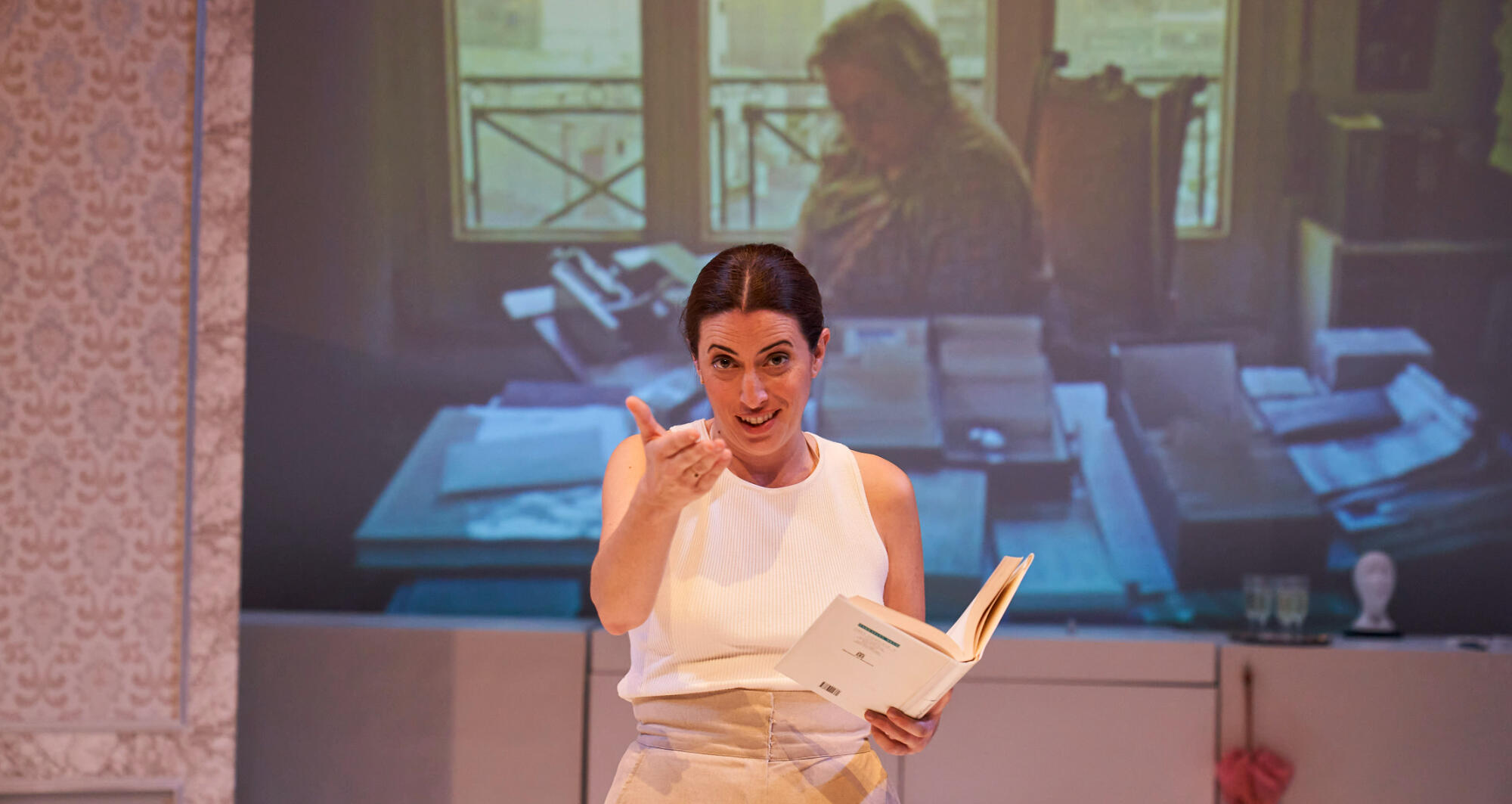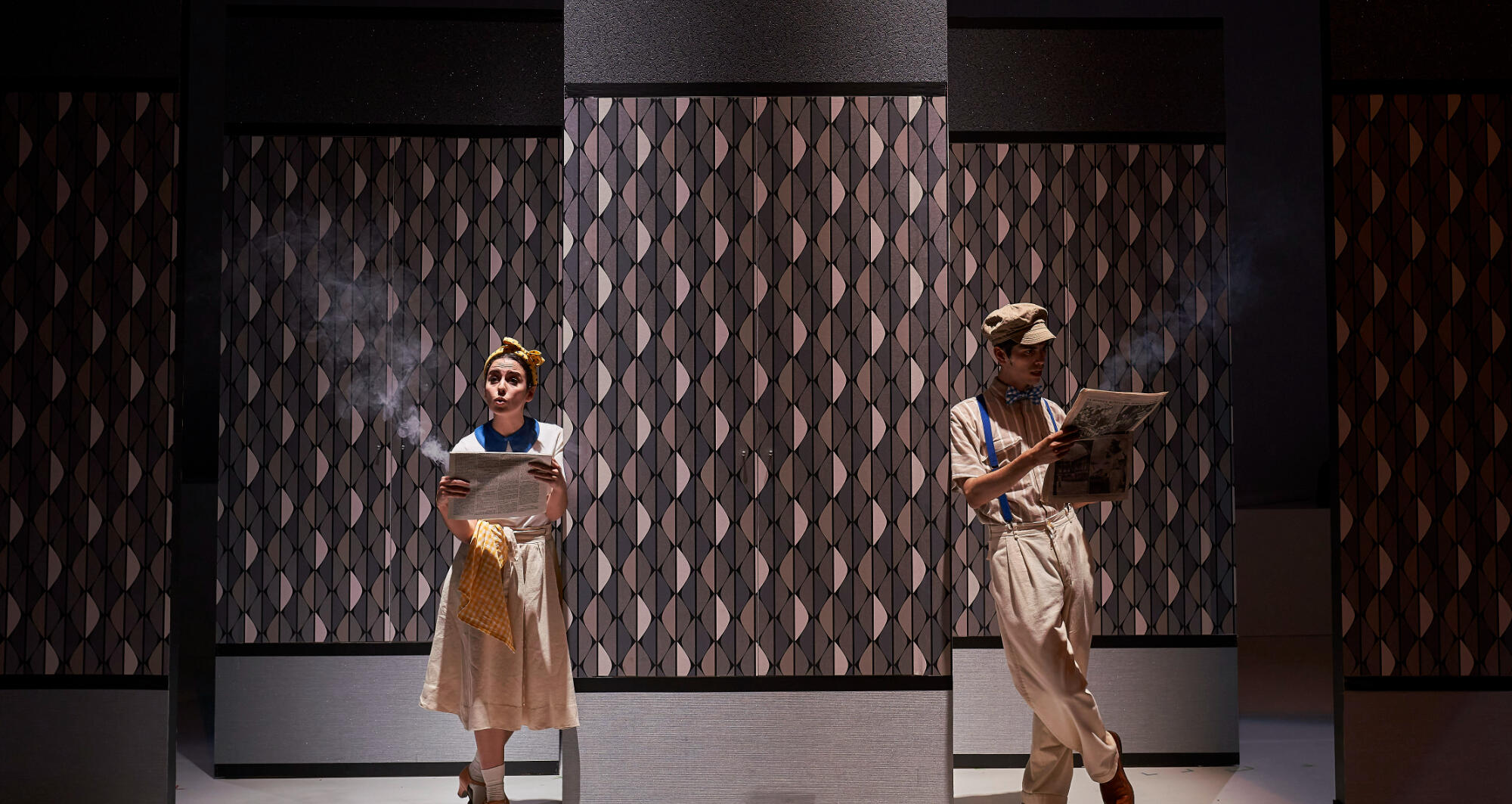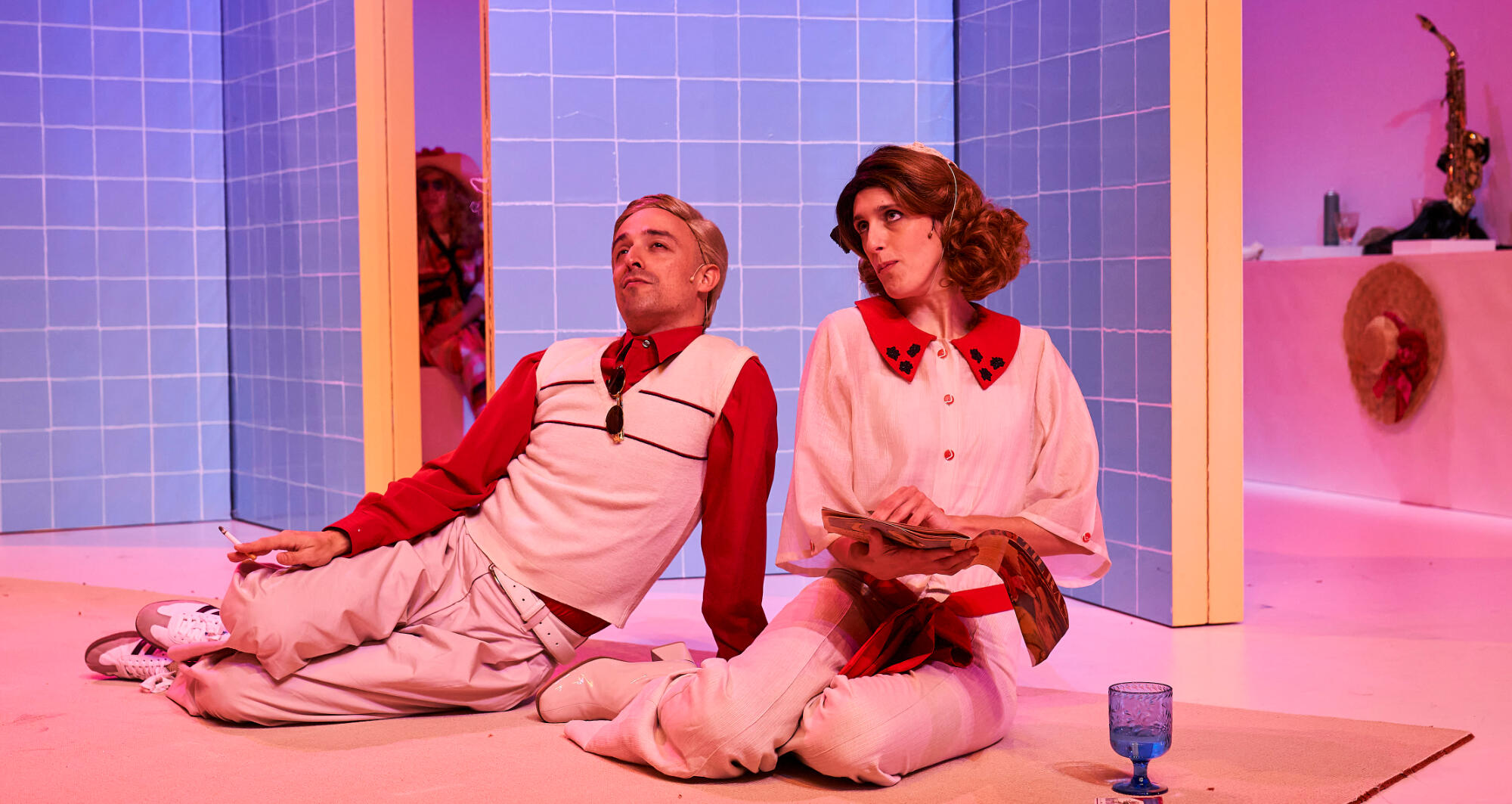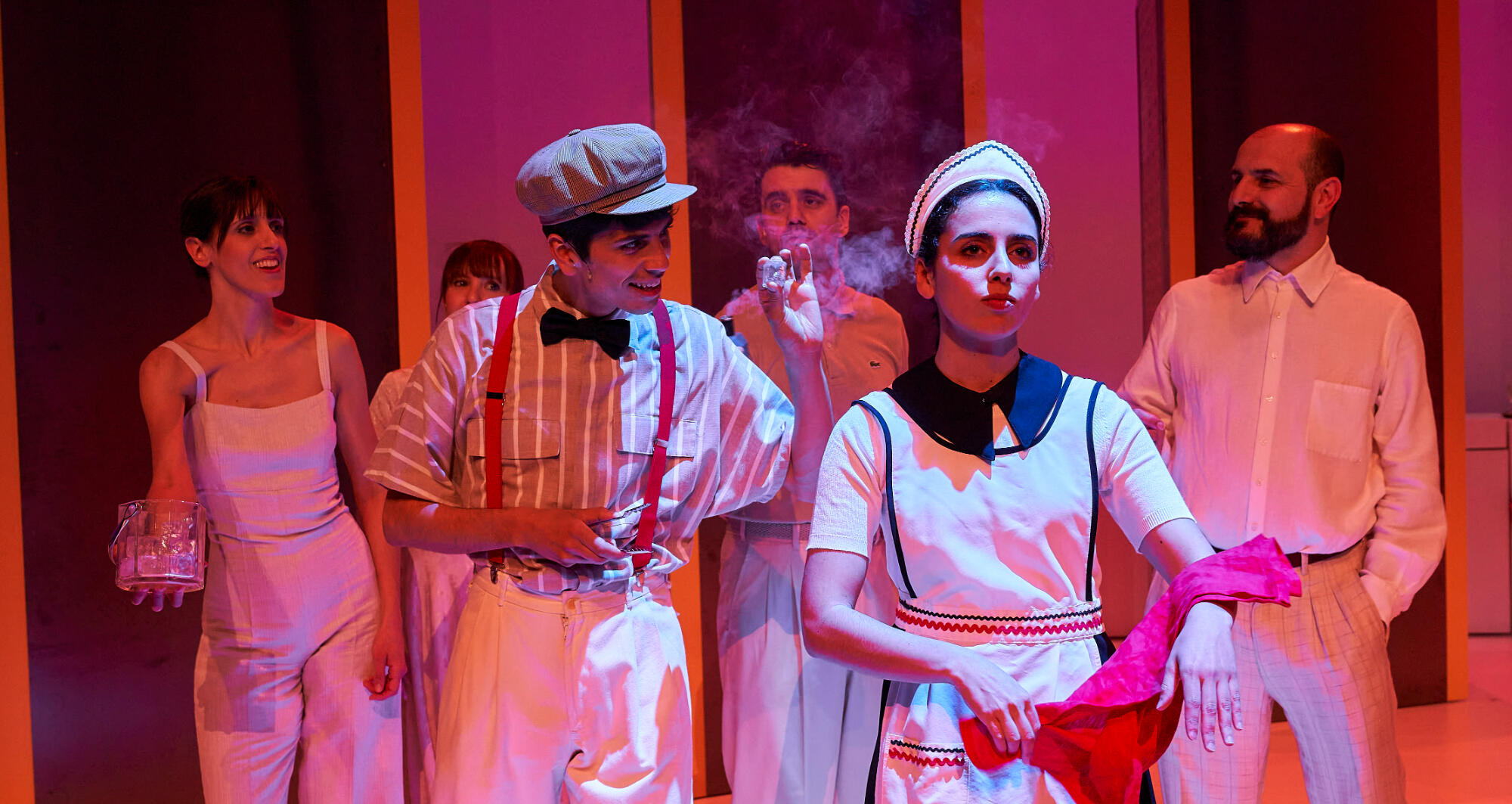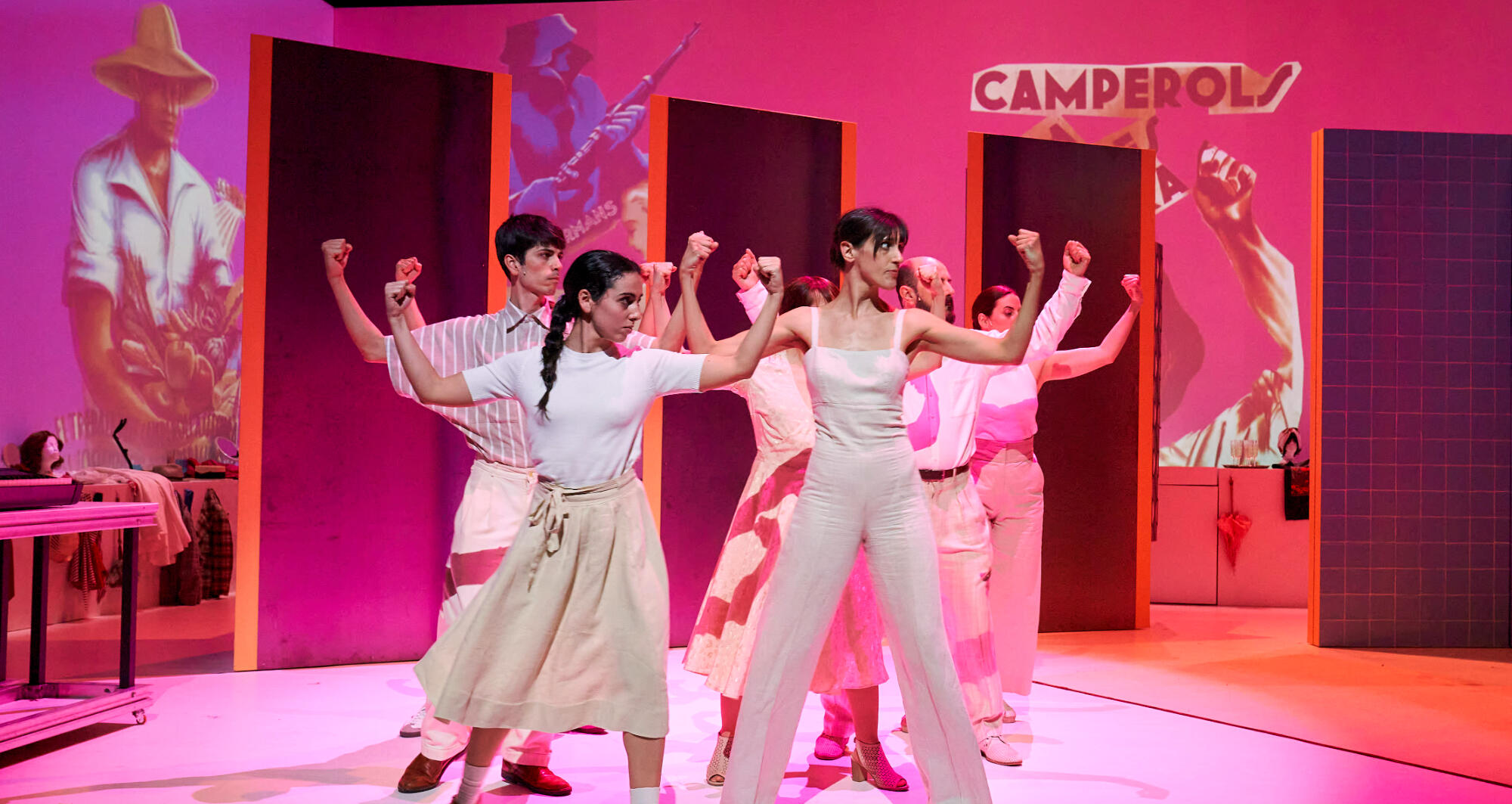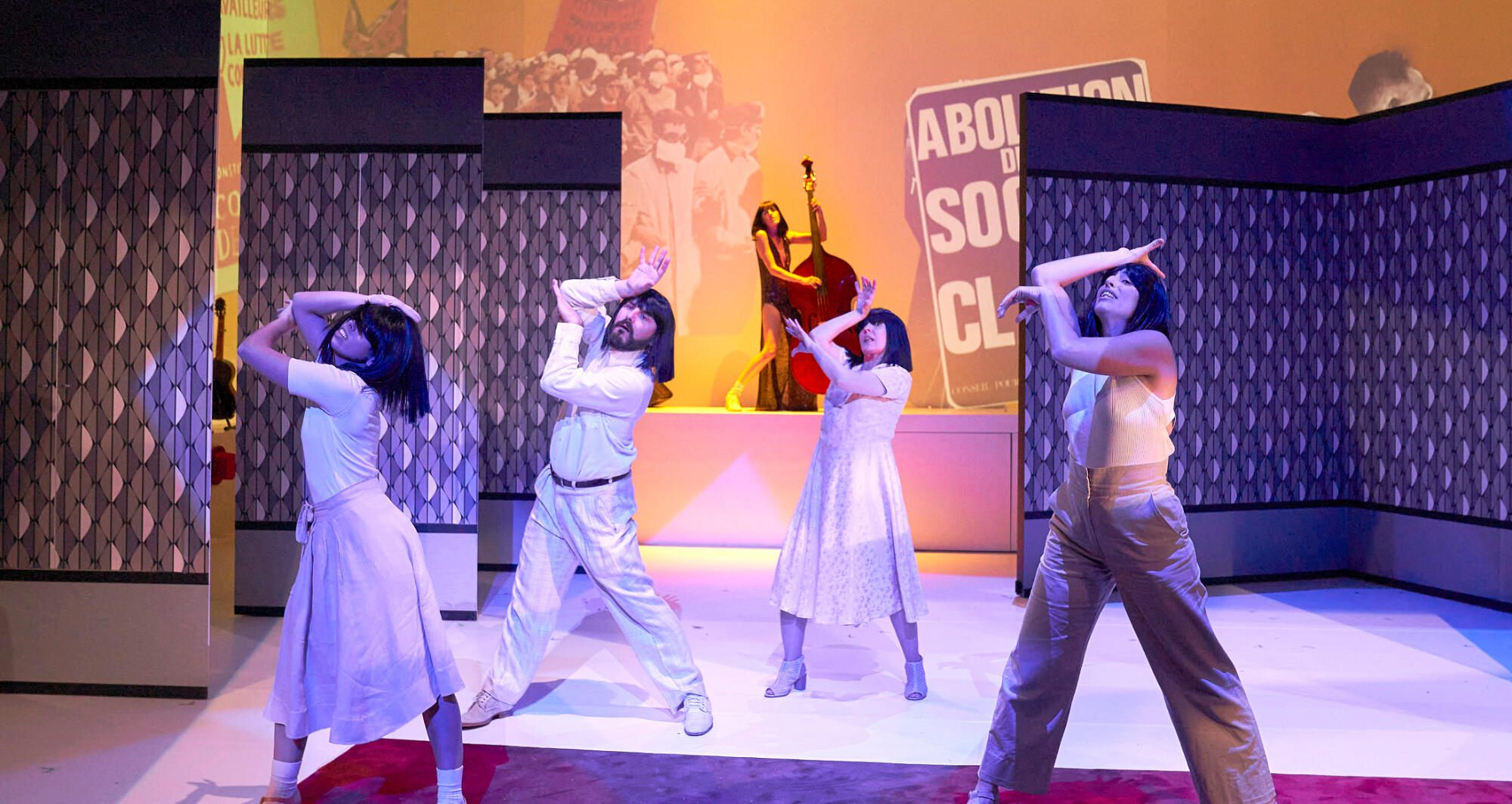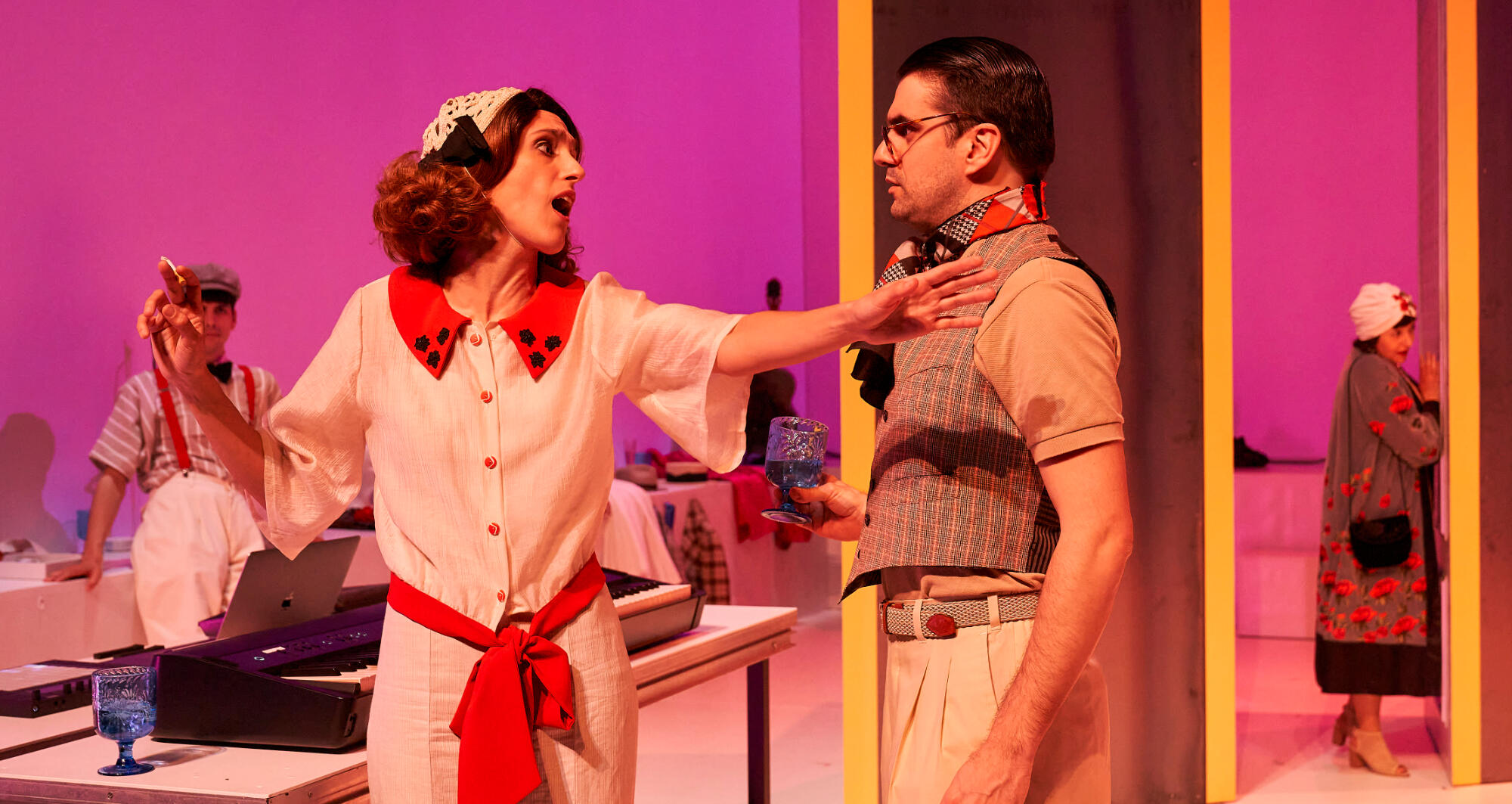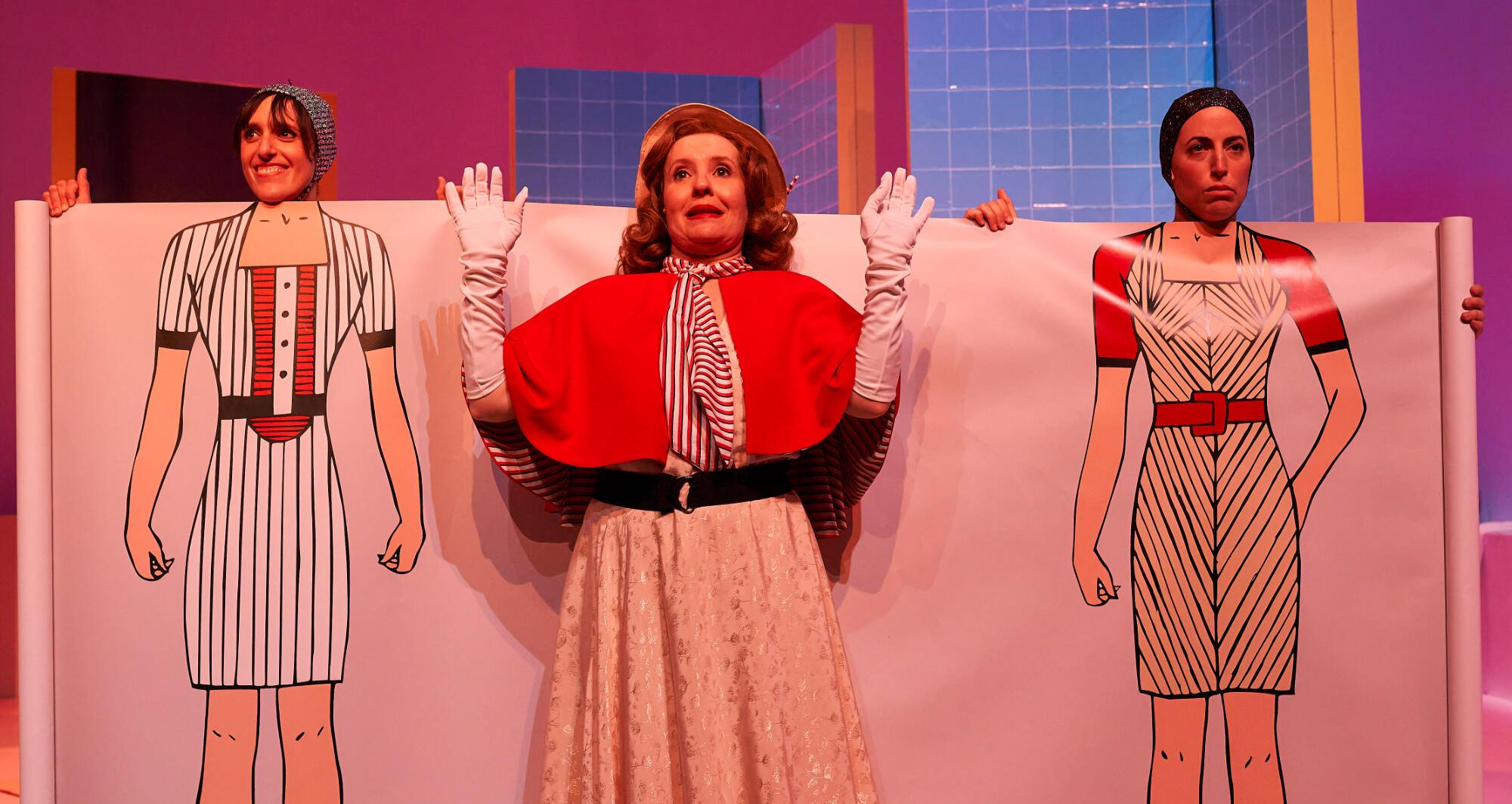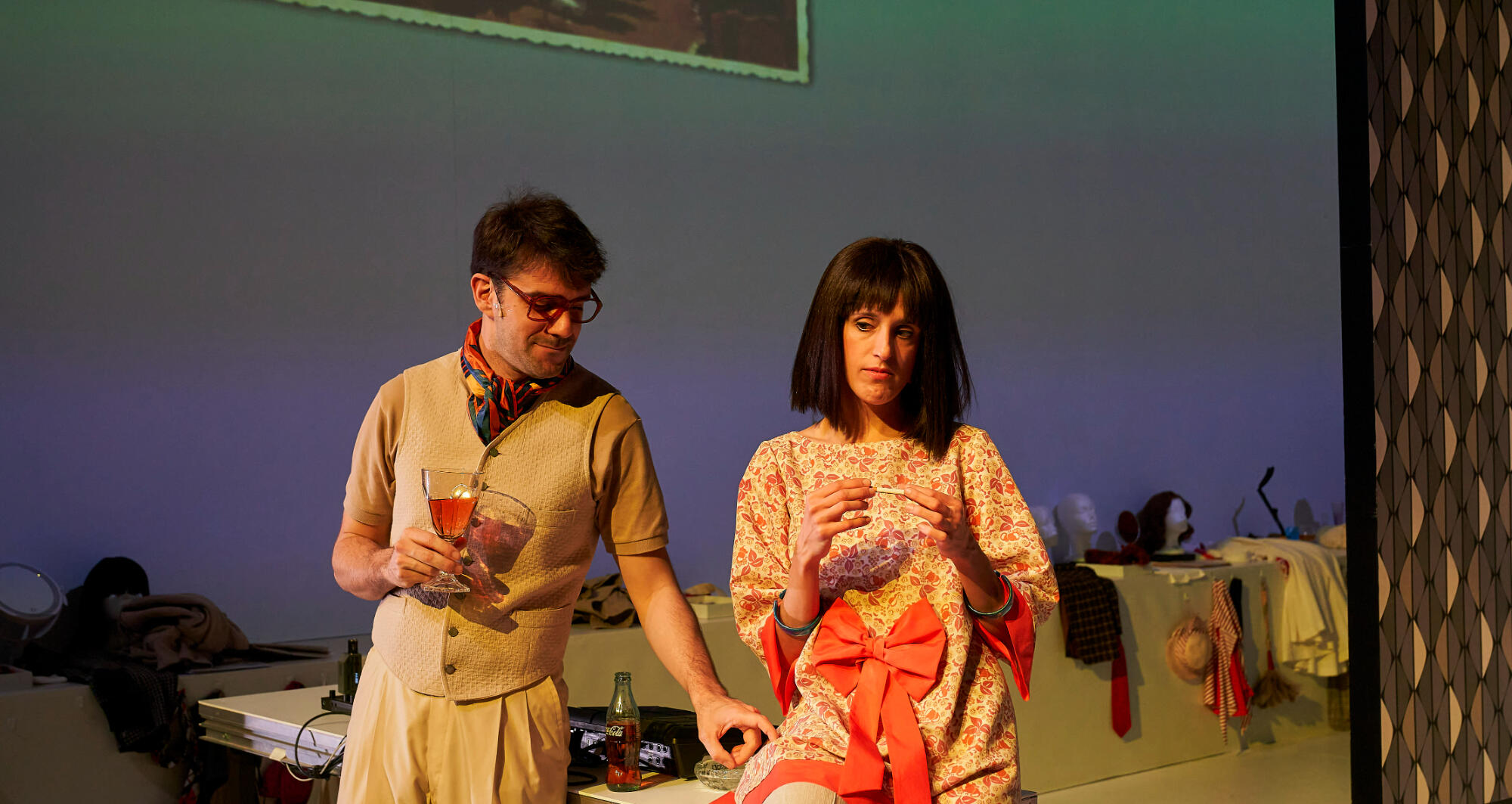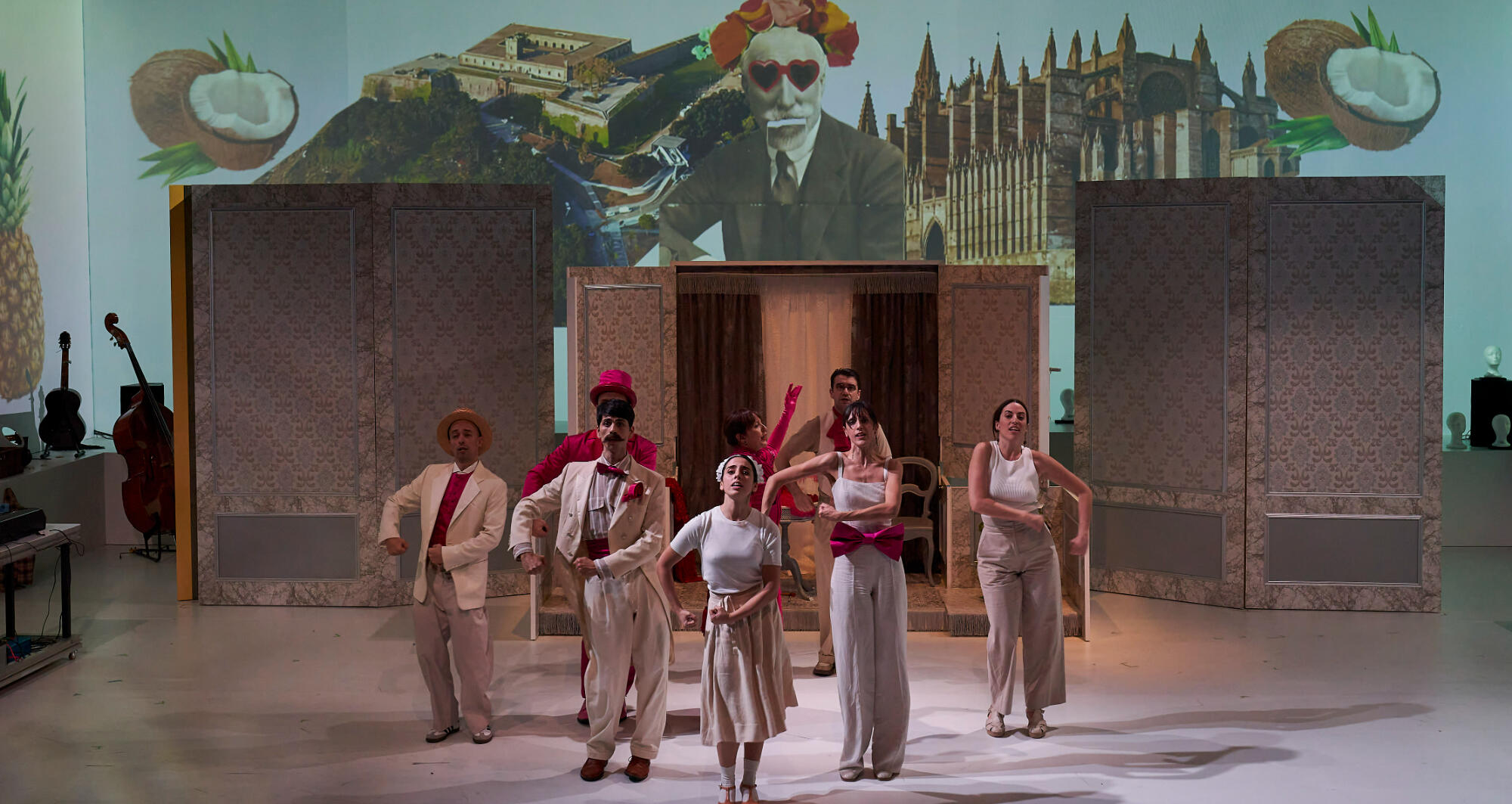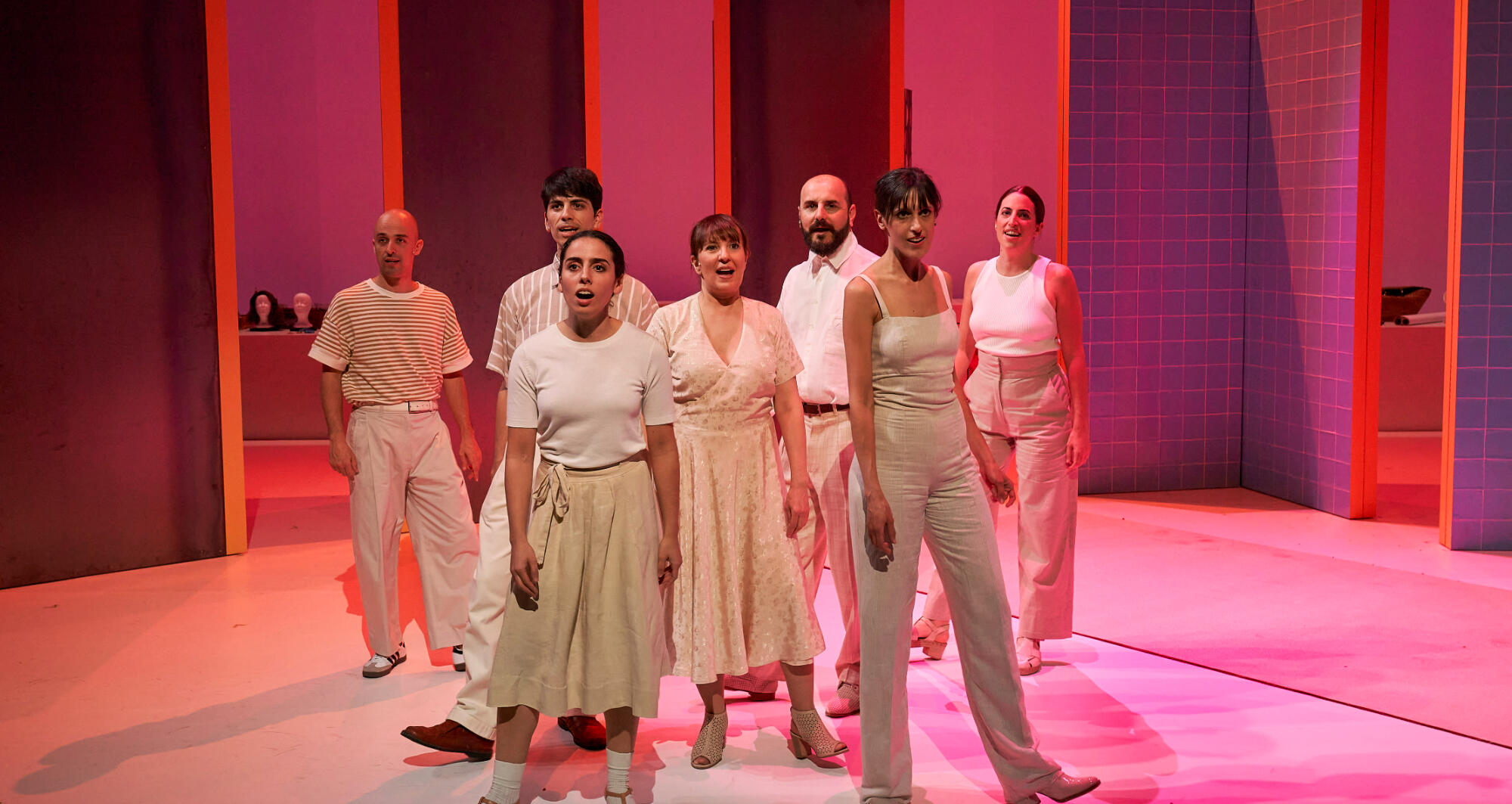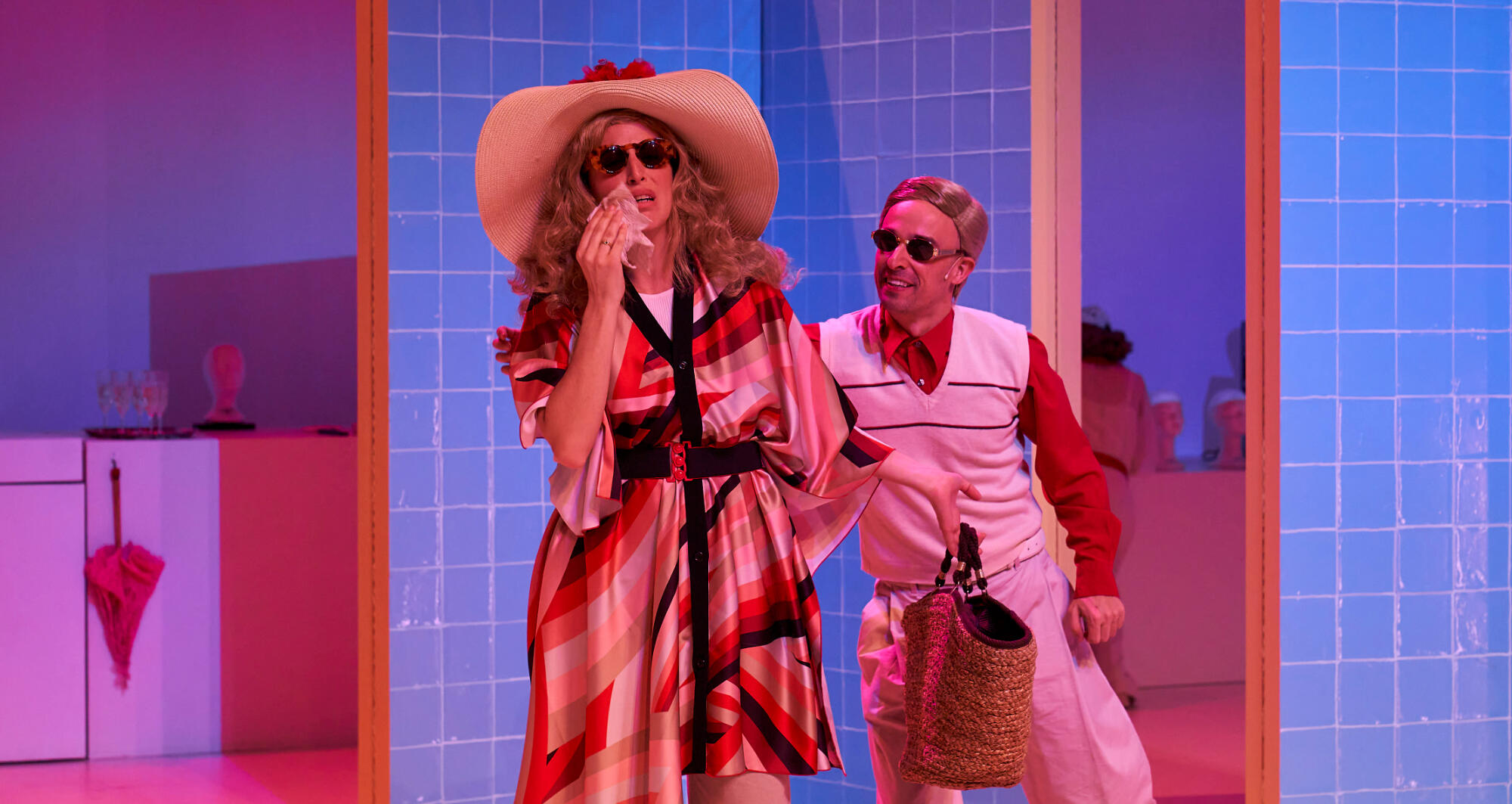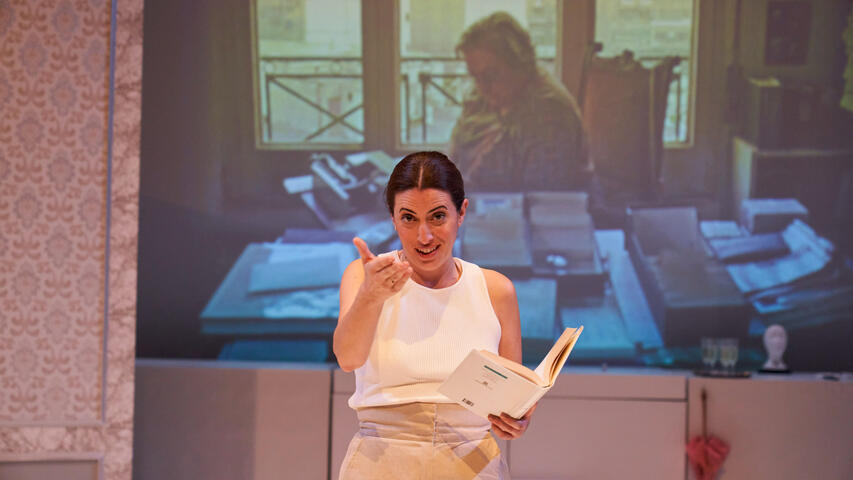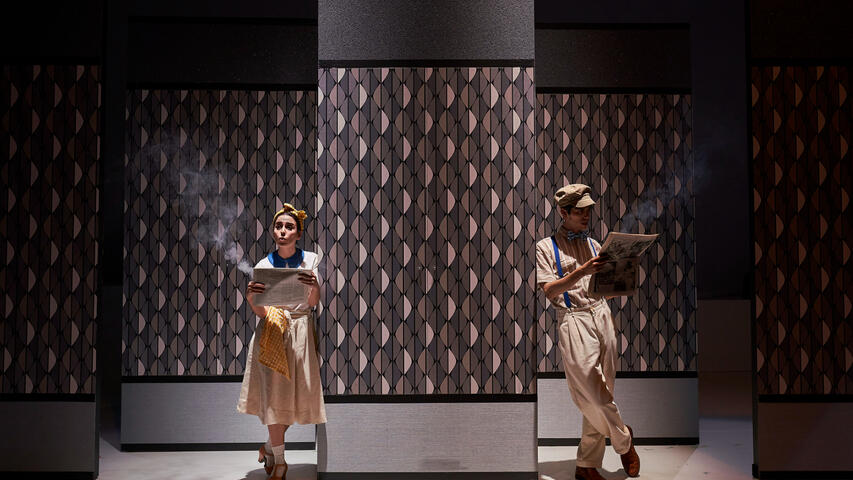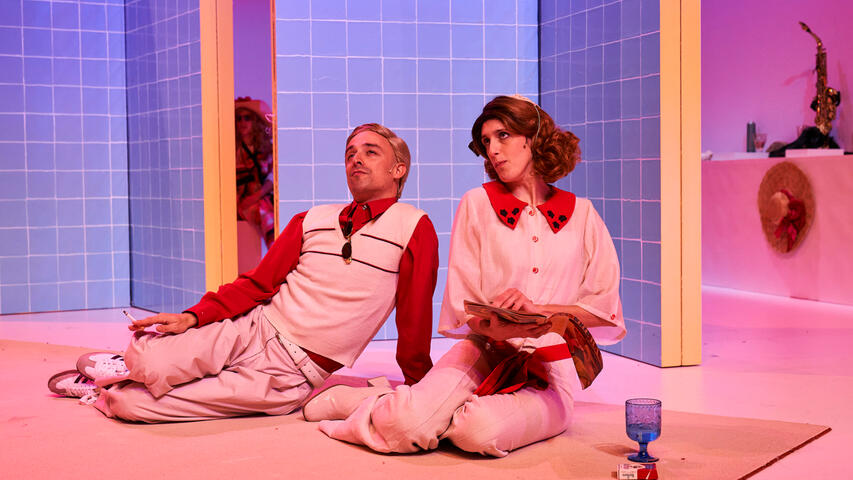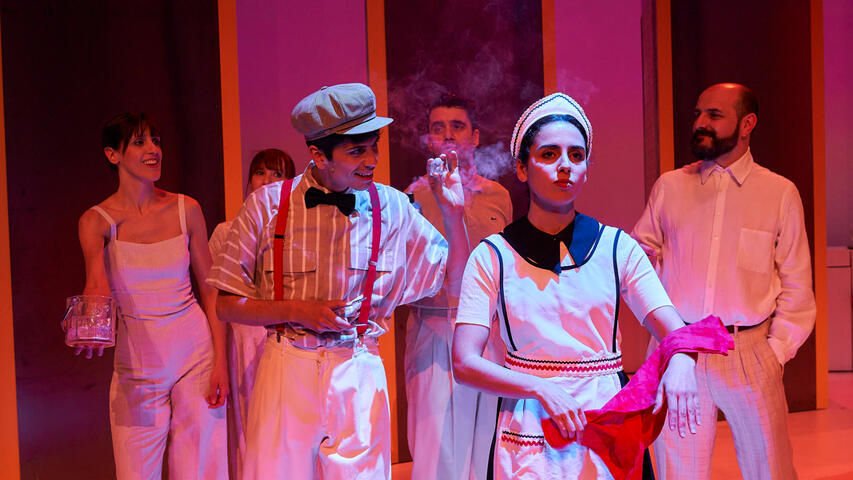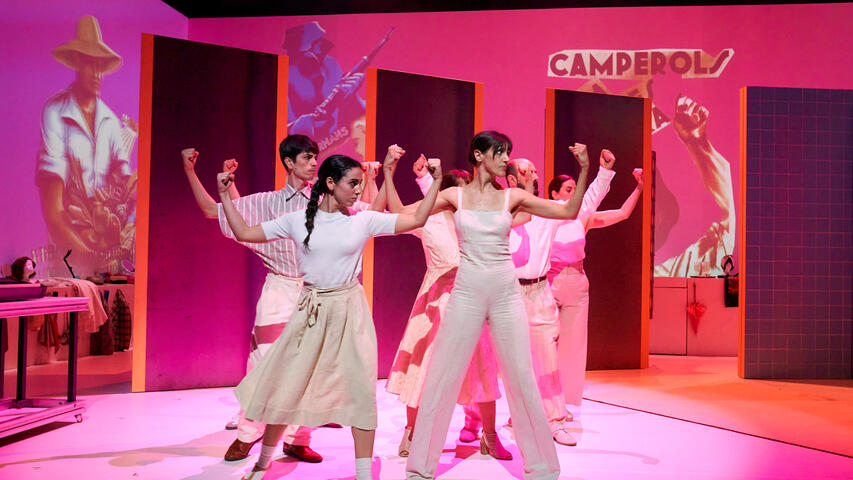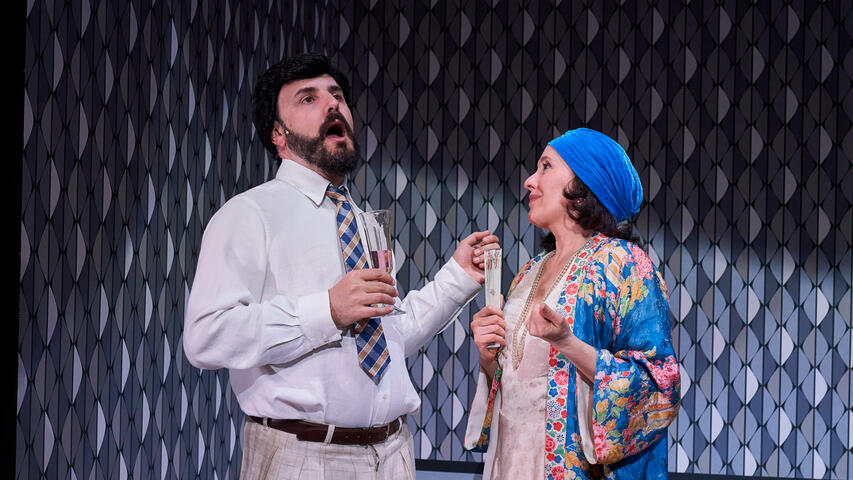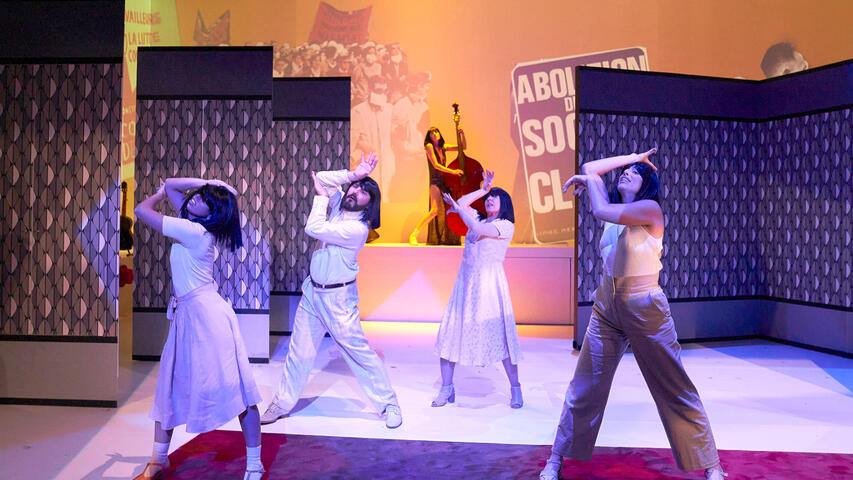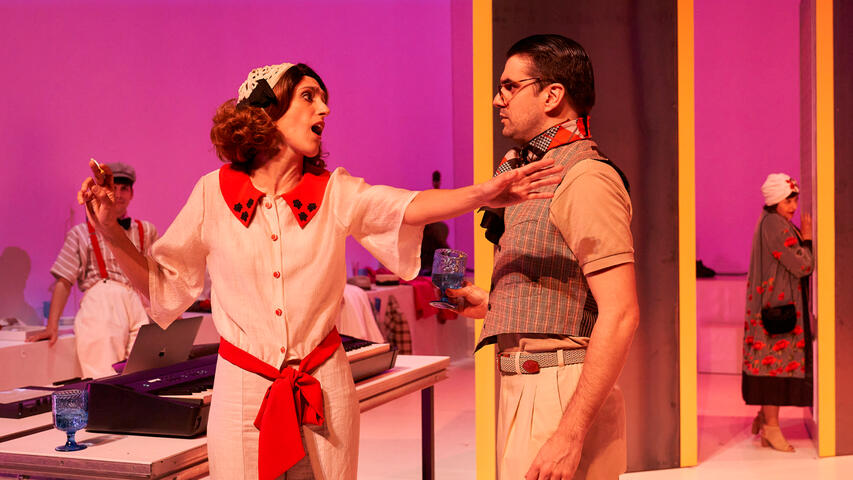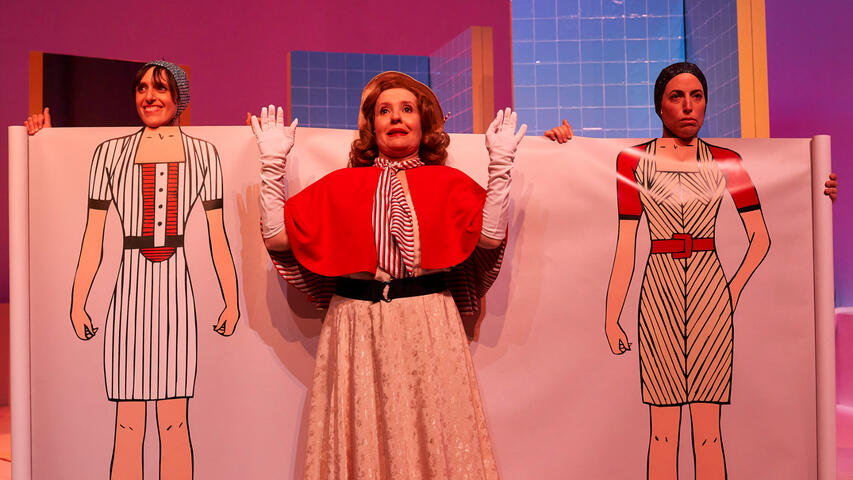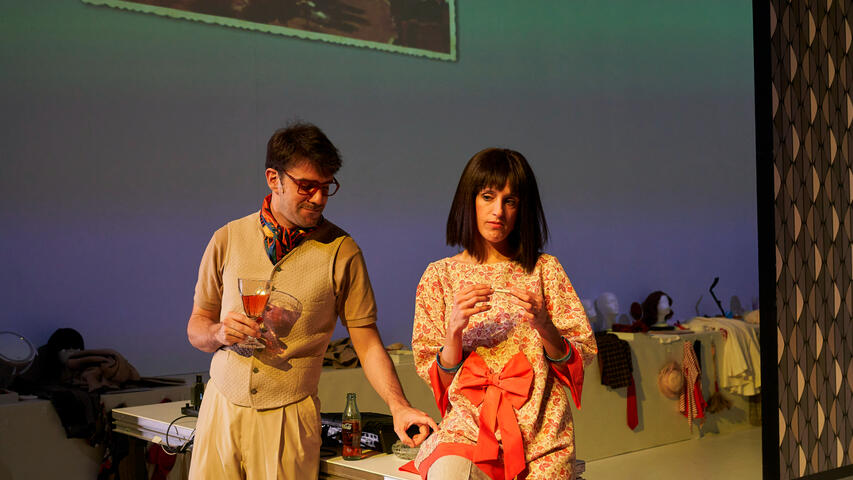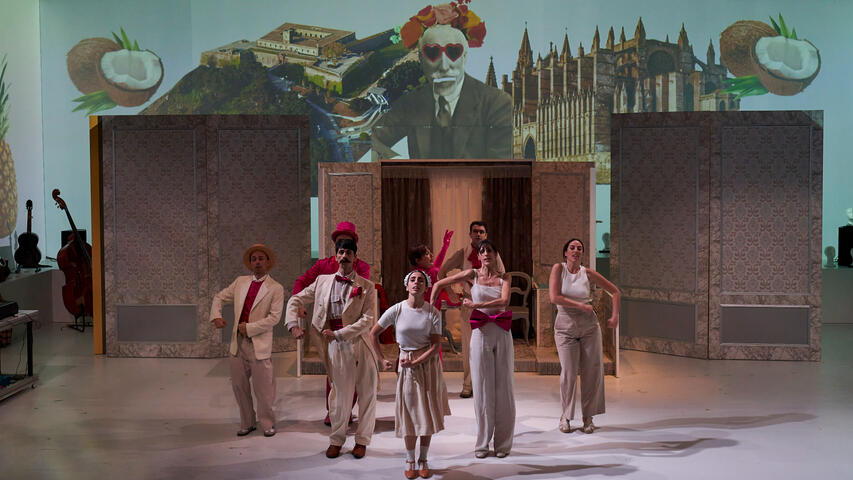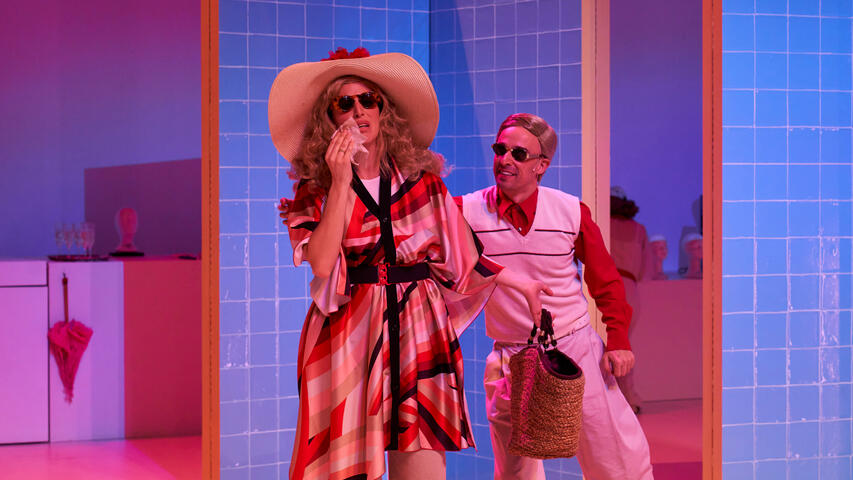Show finished
Vent de garbí i una mica de por
Maria Aurèlia Capmany
An acid portrait of Catalan bourgeoisie
Cadaqués, Sitges and Caldetes. Several holidaymakers are enjoying their time in similar situations but in very different historical periods: in July 1968, on 17 July 1936 and on 30 July 1909. Through this journey over time, the show becomes a mirror of the immobility and impenetrability of the Catalan bourgeoisie.
___________________________________________________________________________________________________
When in an interview on television Montserrat Roig asked Maria Aurèlia Capmany about the portrayal of the Catalan bourgeoisie in her work, she answered:
The Catalan bourgeoisie is very easy to fictionalise, but it does not resemble the English. Because it is unstable, insecure, very changing […], it is short, it ends, destroys itself, it is dying and restless and this, of course, turns it into an enormously attractive collective character.
We take "Vent de Garbí i una mica de por" text as a starting point to continue observing the patterns of bourgeois behaviour, the eternal immobilism of the wealthy classes and to explore the feeling of being outcasts that Capmany raises. We feel class consciousness deep inside, but why is it so hard to talk about it?
Judith Pujol
Autoria
Maria Aurèlia Capmany
Versió
Albert Boronat i Judith Pujol
Amb
David Anguera, Laura Aubert, Alba Florejachs, Àurea Márquez, Miquel Malirach, Albert Mora/Bernat Cot, Miriam Moukhles, Joan Solé
Directed by
Judith Pujol
Set design
Víctor Peralta
Set design assistant
Maria Alejandre
Costumes and characterization
Giulia Grumi
Lighting
Sylvia Kuchinow
Musical direction and composition
Marcel Bagés
David Soler
Sound
Roc Mateu
Sound space
Joan Solé
Movement
Anna Rosell
Video
Carme Gomila
Assistant director
Mauricio Sierra
Assistant costumes
Maria Albadalejo
Assistant audiovisuals
Marc Homar
Production
Teatre Nacional de Catalunya
Thanks
RTVE
Família Lienas
Família Fàbregas
Source of image files
Arxiu Nacional de Catalunya
Arxiu Fotogràfic de Barcelona
Arxiu de Revistes Catalanes Antigues
Biblioteca de Catalunya
Ateneu Barcelonès
Prices
-50% Young, unemployed and people with disabilities: 12 €-25 % Buy before the premiere and others: 18 €
General price: 24 €
School: 10 €
Schedules
TimesWednesday 22nd and 29th March at 11 a.m.
Wednesday, Thursday, Friday and Saturday at 7 p.m.
Sunday at 6 p.m.
Genre: Theatre
1 h 50 min
14 years and above
Catalan
Show included in the season tickets
Programa
Download 
